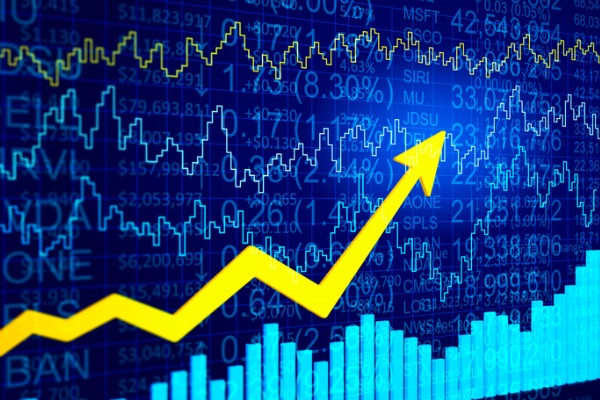A share price revival at FTSE 250 probe maker Renishaw
This former FTSE 100 engineer has sprung to life again, and its shares were up as much as 20% today. City writer Graeme Evans explains what's going on.
6th February 2024 15:49
by Graeme Evans from interactive investor

Early signs of a cyclical upturn today put precision engineering firm Renishaw (LSE:RSW) back among the FTSE 250 high-fliers after the sharp de-rating for shares since 2021.
The Gloucestershire-based firm rebounded 624p to 4060p, its first time above 4,000p since last summer after interim results forecast an improved second-half performance.
- Invest with ii: Open an ISA | ISA Investment Ideas | ISA Offers & Cashback
The guidance that annual profits will be in the range of £122 million and £147 million represented a 3.5% uplift on the midpoint of City forecasts before today.
Adjusted profits for the six months to 31 December fell 23% to £56.5 million, a performance Renishaw described as positive given the challenging market conditions.
Revenues fell 5% to £330.5 million as demand for industrial metrology products in Asia-Pacific was offset by continued weak demand in a number of key sectors, most notably semiconductor equipment.
- Sign up to our free newsletter for share, fund and trust ideas, and the latest news and analysis
- eyeQ: this is why the BT sell-off is not justified right now
- Stockwatch: time to sell Meta and Amazon or hold on?
Renishaw, which intends to pay an unchanged interim dividend of 16.8p on 9 April, continues to have confidence in its business model of solving customer problems with innovative products, global service and world-class in-house manufacturing.
The company said: “While we operate in cyclical markets, we aim for high single-digit average organic growth rates through the cycle.”
Its quality credentials and the launch of a formal sale process meant the stock topped 6,000p in early 2021, sufficient to make Renishaw a FTSE 100 company for the first time.
However, a show of responsible capitalism by co-founders - executive chair Sir David McMurtry and his non-executive deputy John Deer - caused shares to fall back.
The octogenarians, who held over 50% of the shares, pulled the company from sale after failing to find a suitable buyer for the firm they set up in 1973.
Renishaw's first product, the touch-trigger probe, was invented by Sir David to solve a specific inspection requirement for the Olympus engines used in Concorde. This innovative product led to a revolution in three-dimensional coordinate measurement, enabling the accurate measurement of machined components and finished assemblies.
- 10 shares to give you a £10,000 annual income in 2024
- An undervalued FTSE 100 income stock with 28% upside
- 10 hottest ISA shares, funds and trusts: week ended 2 February 2024
The co-founders still serve on the board alongside chief executive Will Lee, a 1996 graduate trainee who was appointed chief executive in 2018. Most of Renishaw’s 5,000 staff are employed in the UK, where the company carries out most of its research and development, but the majority of sales are generated overseas.
Lee said today: “We expect an improvement in our trading performance in the second half of the financial year as market conditions improve, and as we continue to pursue a range of growth opportunities.
“To support our through-cycle growth strategy, we are continuing to focus on productivity and to make targeted investments in our people, our production facilities, and our new product pipeline.”
Today’s upturn for shares backed the confidence of our companies analyst Richard Beddard, who in November added 142 Renishaw shares to his Share Sleuth portfolio at a price of 3138p.
These articles are provided for information purposes only. Occasionally, an opinion about whether to buy or sell a specific investment may be provided by third parties. The content is not intended to be a personal recommendation to buy or sell any financial instrument or product, or to adopt any investment strategy as it is not provided based on an assessment of your investing knowledge and experience, your financial situation or your investment objectives. The value of your investments, and the income derived from them, may go down as well as up. You may not get back all the money that you invest. The investments referred to in this article may not be suitable for all investors, and if in doubt, an investor should seek advice from a qualified investment adviser.
Full performance can be found on the company or index summary page on the interactive investor website. Simply click on the company's or index name highlighted in the article.